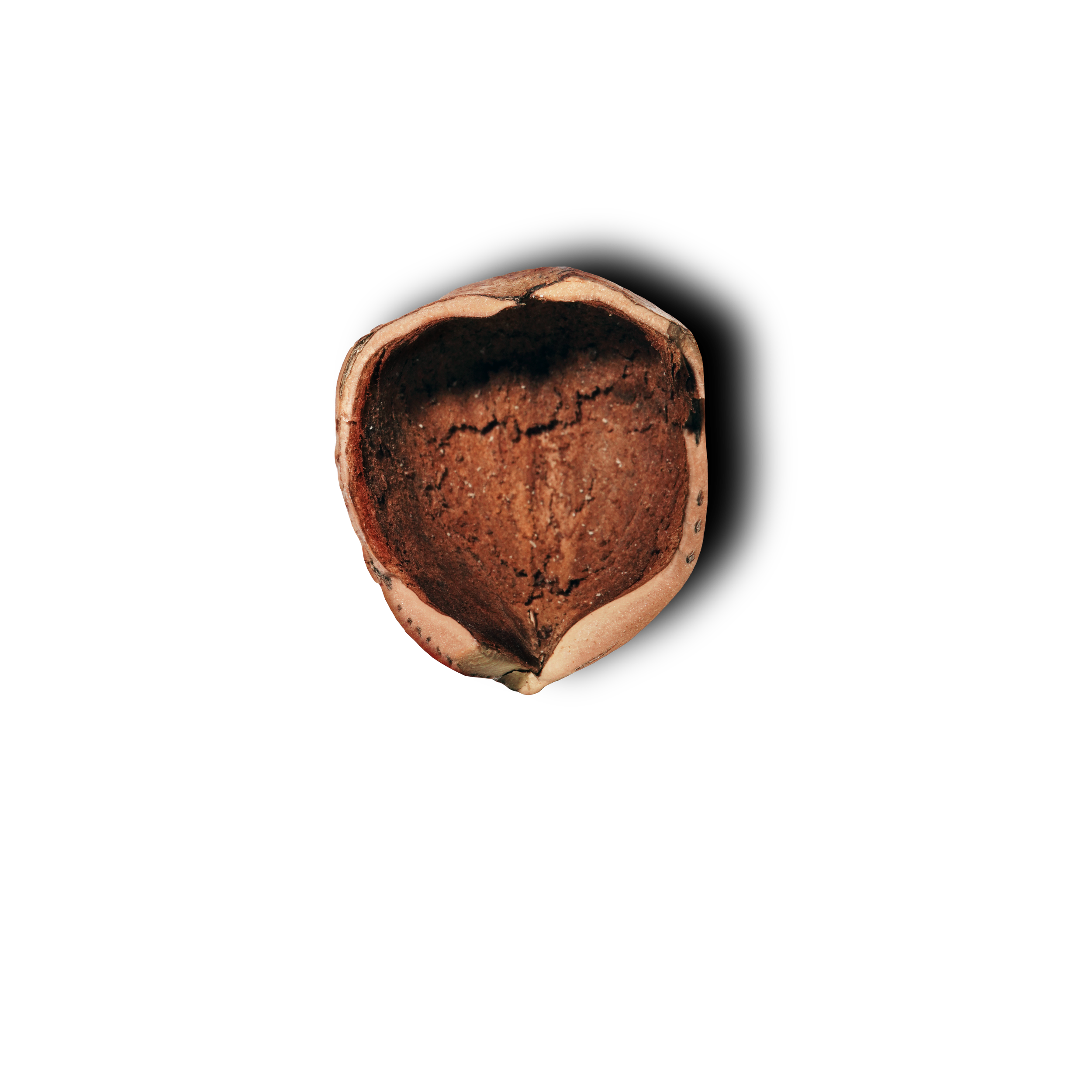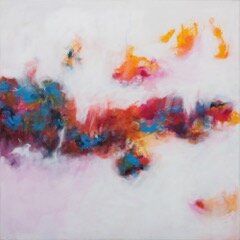In a Nutshell: Eve Dawson
As part of our commitment to local creatives we are using this time to get to know the Winchester scene a little better! Our ‘In a Nutshell’ interviews are aimed at local creatives, practitioners, freelancers and independent businesses residing in Winchester. We want to use our platform to meet new people and showcase the incredible talent residing in this city. Henry caught up with artist Eve Dawson - they spoke about Eve’s approach to her work and the support she has felt in Winchester. Enjoy!
Eve Dawson MA (Fine Art) is an artist who was born in Devon and now lives in Hampshire. She is based at the Sorting Office Studios in Eastleigh, where her work is a perfect balance between the serendipitous and the planned. Her creative language is colour, using a series of idiosyncratic marks and gesture in acrylics, oil pastels and graphite. This then forms a conversation between visual texture, colour, form and depth. Eve’s work is collected by private individuals in the UK and internationally. As well as her studio practise, Eve is a lifelong learning tutor at Peter Symonds Adult Education College in Winchester, teaching courses and workshops in portraiture, drawing, and painting, and she also tutors and mentors at the Hampshire Art Studio sharing her skills and experiences as an artist. Eve gives some of her time as a volunteer at Prescriptive Art, a prescribed group in Romsey that provides a relaxed space where mindfulness can be achieved through creativity.
Henry: Hi Eve, thank you for meeting me today. Could I start by asking you to describe your artistic process and how you create your pieces?
Eve: Yeah, sure! Well, I guess I come under ‘Intuitive Expressionism’...
HM: I like the sound of that!
ED: […]There are hundreds of people working in this sort of method. You don't have a... it's not representational, let's put it that way; it's very much abstract and you don't have any pre-conceived ideas as to what's going to happen. You're working, as much as you can, in an intuitive fashion; the hand becomes the brain. I’m reading a fascinating book on this called ‘The Thinking Hand’ by Juhani Pallasmaa. It’s very much the paintbrush and the hand deciding what happens next. I have to say, if you've been painting like that for a long time which I have been, you can kind of determine the outcome to a certain degree because you tend to fall back on the same colour or tools, the same sort of movements on the canvas. But during lockdown I've been doing lots of sketchbook stuff, trying different things like landscapes which is very different for me; trying to do something every day.
HM: (Throughout the conversation I could see an incredible piece of work behind Eve, so naturally I had to ask) Is that one of your pieces in the background?
ED: Yeah, this is my sort of isolation piece!
HM: Lot's of feelings in that one then!
ED: It's basically a spare piece of canvas that I had, about 6ft by 5ft so quite big. I'm just trying not to think about it too much; coming in and doing a fairly random splurge every day and going with it. I've been pretty much working on it through the whole of lockdown so I'll keep going until I feel it's finished and then either [have it] framed or stashed away somewhere never to be seen again!
HM: I can only see a fraction of it there but looks very interesting. You're still adding to it as well?
ED: Yes, I am but I haven't done anything to it for a couple of days. Like most artists I just sit and look at it for a bit! I try not to think about it too much because you can so easily overwork these things and I try to work quite quickly anyway. If I slow down too much I start to design it and fall into the trap of "well other people like this so that's what I'll do" rather than doing it for myself and that's when it can go a bit pear-shaped.
HM: Do you have times when you feel your mind gets a little too over-involved and you have to stop or push through?
ED: I find if it starts to get difficult you have to down the tools and walk away from it, because that's the danger point where it can all go dreadfully wrong. Although, having said that you do still need to allow for mistakes because that's how you learn from it. If you skirt around it then you don't really learn. Sometimes, a mistake is good.
HM: Do you feel supported as an artist in Winchester?
ED: I felt very supported by a local kitchen shop called bulthaup Kitchens (now Hobson’s Choice), it's down by the King Alfred statue at the bottom of town. They had a lot of wall-space and allowed me to put my work on display over a number of years. I had quite a few clients as a result of that partnership. It was good for my work because, amongst the units, it put my work into a ready-made setting so people could see what my art would look like in their nice kitchen, you know? It was good for them as well because it helped further enhance their kitchens so it felt like it worked really well. I just walked in one day and pointed out all their lovely free wall-space which was a bit cheeky of me, but they went for it!
HM: Clearly you've made a living for yourself through your art which of course is amazing and the dream for many aspiring creatives; how did you find building and then continuing to work as an artist in this city?
ED: Well, with regards to teaching there's quite a nice audience out there, a bit traditional though I hasten to add! Watercolours and landscapes seem to be very popular here and everyone likes life- drawing, always a popular one. It's got a big audience out there of individuals who want to take classes and I really enjoy sharing my creative skills with people. I also do some voluntary work for Prescriptive Art Test Valley which is a fantastic organisation. It definitely has always felt very supportive, bulthaup Kitchens is a clear example of that. The owners who ran it back in 2012 were always hugely interested and supportive of local artists. I have also just got my work into Chalk’s Gallery, in Lymington, which is great and hopefully will lead to some sales!
HM: Fingers crossed! Thanks again Eve, lovely speaking to you.




